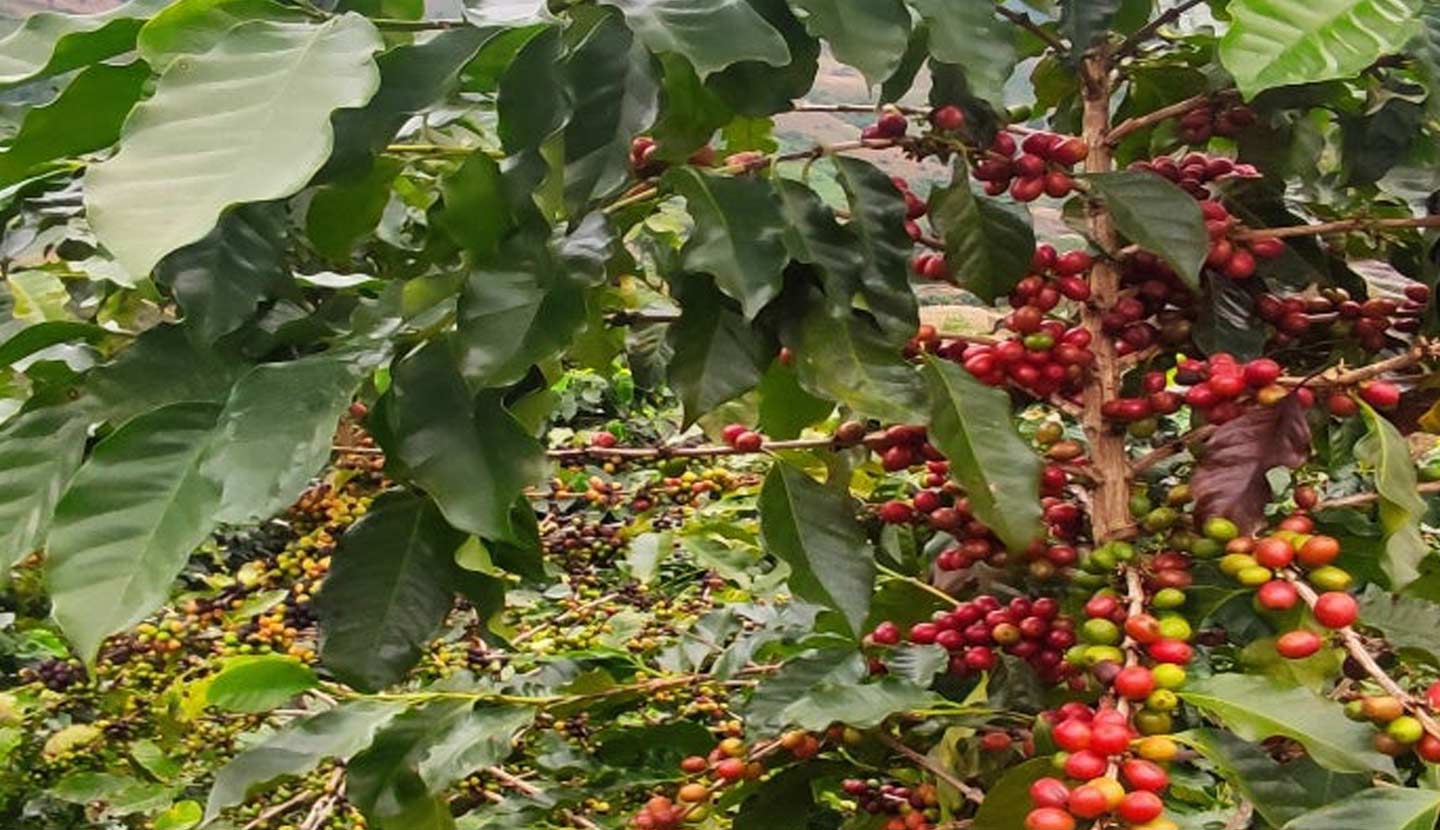What are the different types of coffee beans?
There are four different types of coffee beans, those being Robusta, Arabica, Liberica, and Excelsa. However, the Arabica coffee bean is the most common, making up about 60% - 70% of the coffee that is produced globally. Robusta is also a more common coffee bean used in coffee. Liberica and Excelsa are the least common coffee beans, but you may sometimes come across them.
The Four Different types of coffee beans
Coffee beans are small seeds that are found inside the coffee cherry of the coffee plant. The coffee cherry is not consumed, instead, we pit the fruit and roast it. That is how we create the coffee we all know at love, and this is where our favourite coffee beans come from.
Robusta coffee beans
Robusta coffee beans are the second most globally produced coffee bean. They are most popular in Europe, the Middle East and Africa. The name given to this coffee bean highlights its profile perfectly, it is known for its strong and sometimes harsh, flavour profile. The Robusta coffee bean contains high levels of caffeine, which makes this coffee plant species much more resilient than that of its counterpart, the Arabica bean. The reason for this is due to caffeine acting as a natural insect repellent which wards off the major threat to these plants.
The Robusta bean originated in sub-Saharan Africa, although now, it is predominantly grown in Africa and Indonesia. The Robusta bean is easy to farm, which makes it the first choice for most coffee farmers. The bean is much larger and more rounded than the other bean varieties.
What does it taste like?
The Robusta bean is known for its stronger and sharper taste. It can also be much more bitter than others. The bean not only has a strong taste, but has a strong smell too.

Arabica coffee beans
This is the most common type of coffee bean. The bean originates in Ethiopia and is believed to be the first-ever coffee beans that were consumed. The name is said to have come from the bean’s popularity in Arabia in the 7th century. The bean is grown in areas of high elevation above sea level, such as the rainforests of Brazil, which is the world’s foremost exporter of the Arabica coffee bean.
The bean is prone to diseases during the farming of it, which brings great challenges. Because of these challenges, the price of the bean is high in the global market.
What does it taste like?
The Arabica coffee bean has a very sweet, delicate and light flavour. It is also known for its smooth, and distinct lack of bitterness. Depending on where the bean is grown, the bean can come complete with different tasting notes.

Liberica coffee beans
These coffee beans are native to Western and central Africa, most specifically Liberia. The bean is known for its floral aroma and smoky bold flavour profile and makes up only 2% of the world’s coffee supply. This coffee bean is often mixed with others and is rarely sold on its own. It was widely unheard of before the late 1800s, which is when Liberica beans gained popularity among many Southeast Asian coffee producers after a fungal infection, known as coffee rust, wiped out most of their Arabica crops.
The plant from which Liberica beans grow is much larger than that of Arabica or Robusta. The cherries that are grown vary in size, shape and appearance. The plant is tolerant of hot and humid climates, making it a favourite among coffee farmers. The plant is usually grown in Malaysia and the Philippines.
What does it taste like?
Many people say that Liberica coffee has a distinct and controversial taste, much like marmite, you will either love it or hate it. The coffee bean is said to have an unusually nutty, woody and strong flavour, which can make some coffees extremely flavourful, however, some prefer a less harsh flavour to their morning coffee.

Excelsa Coffee beans
This is the fourth type of coffee bean that has recently been classified as a Liberica variant. The Excelsa plant is grown primarily in Southeast Asia and only represents a small fraction of the world’s overall coffee production. The bean creates a unique flavour profile that boasts a fruitier flavour than most, they are lighter in caffeine too.
What does it taste like?
These beans are pretty unique when it comes to their flavour profile. They are known for their combination of light roast traits such as having fruity flavours. These beans tend to be predominantly found in blends to add depth to the flavour, rather than as a single-origin coffee.

Which one should you choose?
This is very dependent on what type of coffee you enjoy. Knowing that the Arabica and Robusta beans are more popular options may be what encourages coffee drinkers to consume these more. If you are a coffee drinker that prefers their coffee on the pure side, black no milk or cream, then the Arabica would be the perfect fit. If you prefer your coffee with a bit of a robust, rounded and intense flavour, then the Robusta beans are the match for you.
The main thing to note, when choosing which coffee you prefer, is through trial and error. It is all about finding the right coffee for you and making a choice on what your taste buds prefer.
That is our guide on the different types of coffee beans, hopefully, that has given you a little inspiration to get out there and try some more coffees to find your perfect one, want to know more about coffee tasting? Take a look at our article about coffee tasting, next.
Other articles you might be interested in

Join the MyPerks community!
Enjoy prizes, discounts, expert tips, recipes, exclusive offers and more with My Perks.




